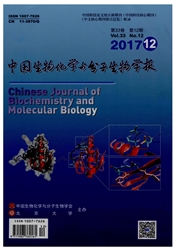

 中文摘要:
中文摘要:
高密度脂蛋白(high-density lipoprotein,HDL)血浆水平与动脉粥样硬化(atherosclerosis,AS)性心血管疾病呈负相关,成为抗AS的重要靶点和热点.然而,近年来多个临床试验未能证明升高血浆HDL的水平对心血管的保护作用,使得人们开始重新审视HDL抗AS功能生物学特性的复杂性.近5年来的研究发现,HDL可通过对造血干细胞(hematopoietic stem cells,HSCs)和内皮祖细胞(endothelial progenitor cells,EPCs)功能的调节发挥抗AS的作用,本文就这一新机制进行综述,期待为HDL迄今尚不完全清楚的复杂心血管保护机制提供研究思路.
 英文摘要:
英文摘要:
High-density lipoprotein( HDL) has become an important target for anti- atherosclerosis for its level of cholesterol content negatively correlated with the risk of cardiovascular disorders. Several recent clinical trials have indicated that increasing HDL cholesterol levels has not contributed to the protection of cardiovascular pathogenesis,which prompted researchers to re-examine the complex of HDL’s role for anti-atherogenic function. Studies have revealed that HDL regulated the functions of hematopoietic stem / progenitor cells and inhibited the development of atherosclerosis. This review focused the research progress in this aspect.
 同期刊论文项目
同期刊论文项目
 同项目期刊论文
同项目期刊论文
 Niacin Inhibits Vascular Inflammation via Downregulating Nuclear Transcription Factor-kappa B Signal
Niacin Inhibits Vascular Inflammation via Downregulating Nuclear Transcription Factor-kappa B Signal Hydrogen Activates ATP-Binding Cassette TransporterA1-Dependent Efflux Ex Vivo and Improves High-Den
Hydrogen Activates ATP-Binding Cassette TransporterA1-Dependent Efflux Ex Vivo and Improves High-Den Niacin inhibits vascular inflammation via downregulating nuclear transcription factor-κB signaling p
Niacin inhibits vascular inflammation via downregulating nuclear transcription factor-κB signaling p Higher level of plasma bioactive molecule sphingosine 1-phosphate in women is associated with estrog
Higher level of plasma bioactive molecule sphingosine 1-phosphate in women is associated with estrog Higher level of plasma bioactive moleculesphingosine 1-phosphate in women is associated with estroge
Higher level of plasma bioactive moleculesphingosine 1-phosphate in women is associated with estroge 期刊信息
期刊信息
